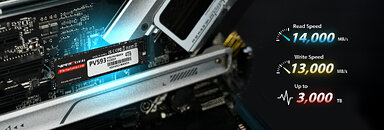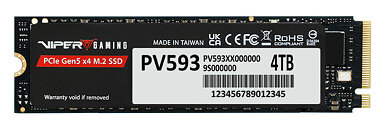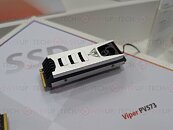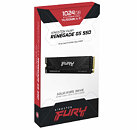
Patriot Memory Announces the PV593 Gen5 SSD
Patriot Memory announced the launch of its latest flagship PCIe Gen 5 SSD - the PV593 PCIe Gen 5 x4 M.2 2280 SSD, delivering industry-leading speeds of up to 14,000 MB/s read and 13,000 MB/s write. Powered by the advanced SMI SM2508 controller and built on TSMC's 6 nm process, the PV593 redefines next-gen storage for demanding workloads such as AI training, 4K/8K video editing, AAA gaming, and high-throughput multitasking.
With performance nearly twice as fast as PCIe Gen 4 SSDs—and over four times faster than Gen 3—the PV593 is engineered for users who demand speed without compromise. It features DRAM cache and dynamic SLC caching technology to reduce latency, accelerate system startup, and improve application launch times. With 4K random read/write speeds reaching up to 2000K/1650K IOPS, users can experience lightning-fast responsiveness across all tasks.
With performance nearly twice as fast as PCIe Gen 4 SSDs—and over four times faster than Gen 3—the PV593 is engineered for users who demand speed without compromise. It features DRAM cache and dynamic SLC caching technology to reduce latency, accelerate system startup, and improve application launch times. With 4K random read/write speeds reaching up to 2000K/1650K IOPS, users can experience lightning-fast responsiveness across all tasks.














































